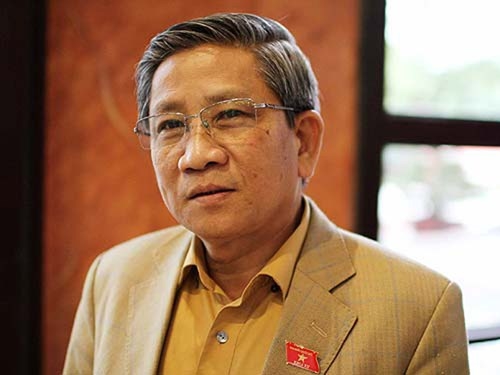.jfif) Opinion
Opinion

Professor Nguyễn Minh Thuyết, former Vice Chairman of the National Assembly Committee on Culture, Education, Youth and Children, speaks to the newspaper Tiền Phong (Vanguard) about tasks facing the new cabinet.
 |
| Professor Nguyễn Minh Thuyết |
In your opinion, what are the strengths of the new cabinet members compared with the previous one?
The most striking advantage of the new cabinet is that most members climbed the ladder from various positions they held before. The last three months serving in the old cabinet was a good experience for many of them.
In my opinion, Prime Minister, Nguyễn Xuân Phúc and his cabinet members have all voiced their determination to build a clean, strong and constructive government. However, I should mention that quite a lot of difficulties and challenges lie ahead for the new government.
Would you please elaborate?
I just want to mention the five key challenges.
First, I must confess that the performance of State-owned enterprises (SOEs) is less effective than that of private enterprises. Coupled with that, most foreign-invested enterprises’ performance has not been as effective as it should be, except for a few like the Samsung Company of South Korea.
Regarding the financial area, I have to admit that the national budget collection has failed to cover expenditures while public debt remains high. These two factors have become a major hurdle for the new government.
Second, I just want to mention some major social stumbling blocks, such as corruption, unsafe food, unemployment, shortcomings in education and healthcare, and others.
Third is the environmental issue. In its national development, Việt Nam is a late comer. Naturally, we should have learned lessons from our predecessors, particularly on the environmental issue. If that had been done properly, I think incidents such as the fish deaths caused by the Hưng Nghiệp Formosa Hà Tĩnh Steel Corporation or pollution caused by the Nhân Cơ Aluminum Plant could have been averted.
In short, the three mainstays for our nation’s sustainable development - the economy, society and environment - are facing acute problems.
Fourth is the administrative reform. So far, no major breakthrough has been recorded in this area. In reality, the government has done quite a lot of work for enterprises, but cumbersome procedures are reported on almost all administrative levels.
And last but not least, more than ever before, our territorial waters sovereignty faces escalating challenges.
In your opinion, what should the Government do to overcome such big challenges?
In my opinion, there are four major things that the Government should do to overcome these big challenges.
First, the Government should renew their thinking. One of the things is to let enterprises do their job. For example, the US is a big country, but its administrative apparatus is almost like ours, with the same number of ministries like ours, with a President and a Vice President.
The catchword is "constructive" Government, meaning creation of a good legal and social environment for its citizens to work. The Government should not lead people through a maze erected by its own apparatus.
Second, a true democracy must prevail. The Government should place confidence in the people. I’m confident the people’s mighty strength will be with the Government if a real democracy prevails.
Third, the country must be ruled by law. No one is above the law.
And finally, each cabinet member should be a role model for the people to follow.
When we talk about the rule of law, should we emphasize the role played by the head of state?
I can’t agree more.
Under our constitution, all citizens have to uphold the law.
However, when something bad happens, of course, first of all, the head of state has to take responsibility. To put this concept into practice, we need to adopt new thinking. Let’s ask a question: why do so few offie holders in Viet Nam resign - or are dismissed - when some serious mistakes occur on their watch? It is normal practice in other countries, why not in Việt Nam?
In his address following his re-election as the Prime Minister, Nguyễn Xuân Phúc said that his government should do all it can so that children of farmers, workers and poor people have opportunities to attend school and even become future leaders of the nation. How do you respond to Phúc’s message?
The selection and promotion of talented people has always been practiced in our age-old history.
Right from the founding of the then-Democratic Republic of Việt Nam in 1945, our late President Hồ Chí Minh was the first to turn that truth into reality. But, as time went by, that goal has been gradually forgotten. PM Phúc’s message reminded us of the importance of using talented people for our national development.
I’m confident that Phúc’s message will be turned into a reality and there will be no place for “nepotism” in our society. —VNS




